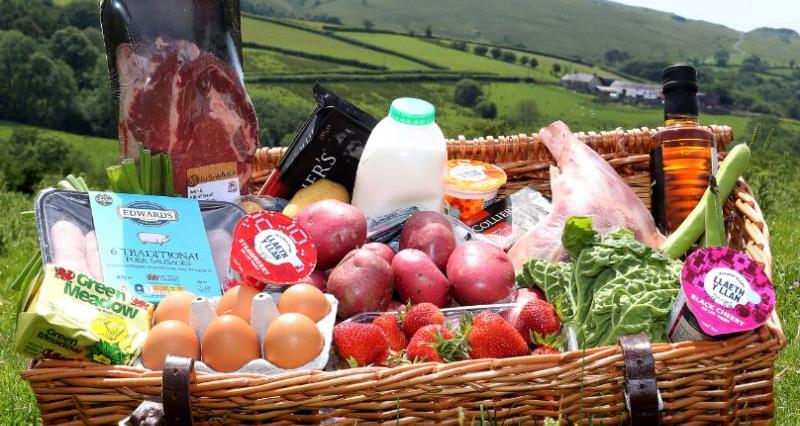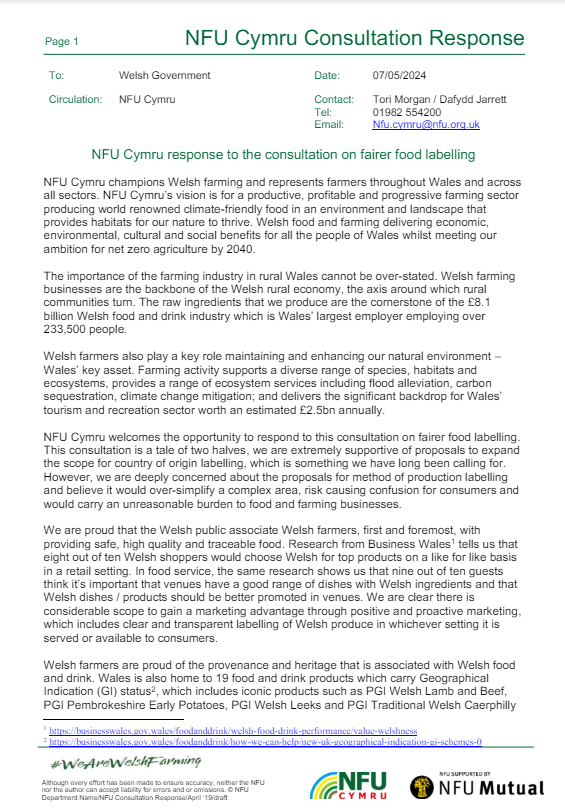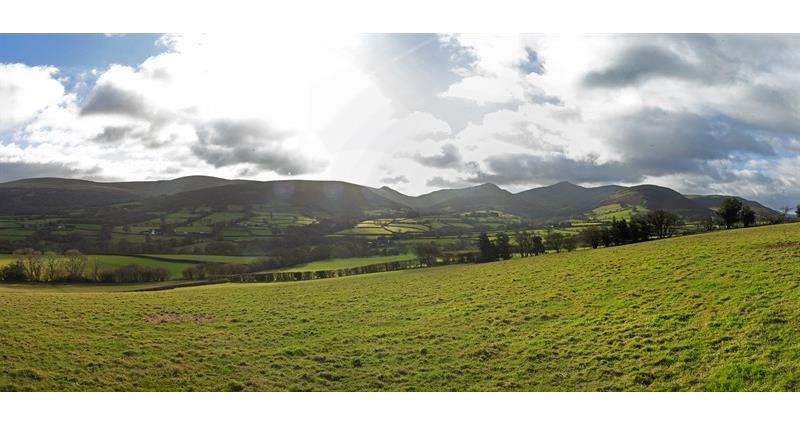The proposals look at how to improve country of origin labelling for certain goods, including how and where this information is displayed and what products should be included. For example, if imported pork is cured into bacon in the UK and features a Union Jack, it would explore ways to make it more obvious to consumers that the pig was reared abroad – such as increasing the size of the country of origin text, or placing it on the front of the packet.
Labelling on pork, chicken and eggs
The consultation also sets out plans which would require ‘method of production’ labelling on pork, chicken and eggs, including a proposed mandatory ‘five-tier label’ for both domestic and imported products.
The five tiers and standards would be primarily based on methods of production, differentiating between products that fall below, meet and exceed relevant baseline UK animal welfare regulations.
'Food labels must be clear'
In response, NFU Cymru President Aled Jones said “We are pleased that the Welsh public associate Welsh farmers, first and foremost, with providing safe, high quality and traceable food. We believe food labels must be clear, simple and contain accurate information, including the country of origin, to give consumers the information they want and to enable them to select products which support Welsh farmers.”
“However, labelling on its own is not the answer to safeguarding our own high standards from imports that are produced under conditions that would be illegal in the UK. In this context, we continue to call on the UK Government to enshrine a set of core environmental and animal welfare standards in law for all agri-food imports.”
“Wales is home to 19 food and drink products which carry Geographical Indication (GI) status, which includes iconic products such as PGI Welsh Lamb and Beef, PGI Pembrokeshire Early Potatoes and PGI Traditional Welsh Caerphilly cheese. Welsh farmers are proud of the provenance and heritage associated with Welsh food and drink, so we encourage Welsh Government and food businesses to protect, celebrate and promote the unique characteristics of Welsh food and drink at every opportunity”.
High quality produce
In the response to the consultation NFU Cymru expressed its support for proposals to expand the scope for country of origin labelling, something we have long been calling for. An NFU Cymru commissioned survey conducted by YouGov found that three quarters of Welsh adults (74%) view food produced in Wales as high quality and research from Business Wales found that eight out of ten Welsh shoppers would choose Welsh for top products on a like for like basis in a retail setting. NFU Cymru believes that clear front of pack country of origin labelling can help consumers make informed purchasing decisions and allow them to select goods which are produced by Welsh farmers.
Where the Welsh flag and / or Union Jack is used on packaging we highlighted that they must be used correctly to ensure that consumers are not misled into believing they are supporting Welsh farmers when they may in fact, be buying product produced elsewhere. For example, partial use of flags on packs can be misleading for consumers, claims such as “Made in Wales” or “Made in the UK” on products which use imported raw ingredients can be deceptive and we see examples where shelf edge labelling or marketing material directly above or below products doesn’t always relate to the country of origin of the products on-shelf.
Hospitality
NFU Cymru also indicated its support for expanding the scope for country of origin labelling to hospitality and out of the home settings. We believe that communicating information about origin and provenance can add value to the consumer and the operator within the out of home market.
However, NFU Cymru categorically rejected the introduction of mandatory welfare or production method labelling. We believe that method of production is not an indication of welfare, it risks over-simplifying a complex area and will neither improve consumer information nor will it reward Welsh farmers for higher standards. To create a labelling framework that considers production system alone, completely ignores the care, attention to detail and financial investment that Welsh farmers put into ensuring the highest standards of animal welfare are in place on their farms.
If consumers need clear reassurance that animal welfare has been prioritised and is being scrutinised accordingly then we believe this is best delivered through independently audited assurance schemes, such as Red Tractor or Farm Assured Welsh Livestock Beef and Lamb Scheme (FAWL).
Labelling in this area should be voluntary but should follow compulsory rules when certain terms are used to ensure accuracy and consistency. Where information on welfare is provided to consumers about animal welfare, we support the use of existing technology, such as QR codes on packs or in menus.


